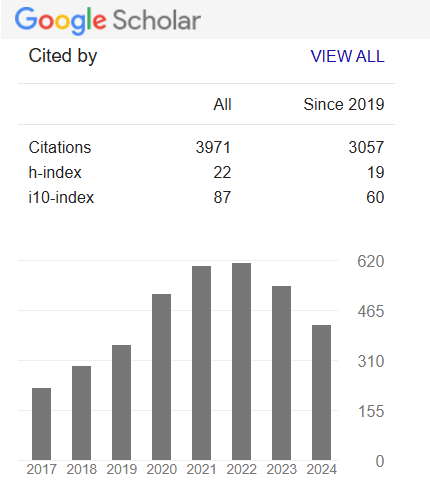Strategic reduction of Plasmodium falciparum infant mortality in Nigeria: Enhancing healthcare equity through medical drone delivery of the RTS,S/AS01 vaccine
Keywords:
Malaria, vaccine, global health, bioethics, health inequity, United Nations Sustainable Development Goals (UN SDGs), global sustainabilityAbstract
Malaria has been known to be a fatal disease that can be transmitted through the exchange of blood and is carried by the plasmodium parasite. Nigeria is one of the countries in Africa that has suffered the most from malaria, with the region accounting for 95% of malaria cases and 96% of malaria deaths. Malaria is the leading cause of child and infant mortality in Nigeria, due to the many healthcare disparities and inadequate access to current treatments. We researched the distribution and transportation issues around inefficient road systems, and vaccine storage surrounding malaria treatment, using a case study of a Rwandan drug transportation startup known as Zipline. When investigating through an ethical lens, we focused on the concepts of priority setting for malaria cases in Nigeria, specifically infant health groups, and the ethical mass distribution of vaccines. By integrating self-assembled, automated, GPS-routed, electronic drones and optimizing the storage system, our research aimed to propose a cutting-edge, sustainable ethical solution for the distribution of the RTS, S/AS01 vaccine. This research shines light on how to effectively combat similar health crises via the usage of medical delivery drones for mass administration.
Downloads
References
Ackerman E (2022, February 28) In the air with Zipline’s medical delivery drones. IEEE Spectrum. https://spectrum.ieee.org/in-the-air-with-ziplines-medical-delivery-drones
Arora N, C Anbalagan L & Pannu AK (2022) Towards Eradication of Malaria: Is the WHO’s RTS,S/AS01 Vaccination Effective Enough? Risk Management and Healthcare Policy, 14, 1033–1039. Taylor & Francis Online. https://doi.org/10.2147/RMHP.S219294
CDC (2019) CDC - Malaria - Diagnosis & Treatment (United States) - Diagnosis (U.S.). CDC. https://www.cdc.gov/malaria/diagnosis_treatment/diagnosis.html
Datoo MS, Natama MH, Somé A, Traoré O, Rouamba T, Bellamy D, Yameogo P, Valia D, Tegneri M, Ouedraogo, F, Soma R, Sawadogo S, Sorgho F, Derra K, Rouamba E, Orindi B, Lopez FR, Flaxman A, Cappuccini F, & Kailath R (2021) Efficacy of a low-dose candidate malaria vaccine, R21 in adjuvant Matrix-M, with seasonal administration to children in Burkina Faso: A randomized controlled trial. The Lancet, 0(0). https://doi.org/10.1016/S0140-6736(21)00943-0
Effiong FB, Makata VC, Elebesunu EE, Bassey EE, Salachi KI, Sagide MR, Abdulameed, HT, & Uwishema O (2022) Prospects of malaria vaccination in Nigeria: Anticipated challenges and lessons from previous vaccination campaigns. Annals of Medicine and Surgery, 81, 104385. https://doi.org/10.1016/j.amsu.2022.104385
Griffith EF, Schurer JM, Mawindo B, Kwibuka R, Turibyarive T & Amuguni JH (2023b) The Use of Drones to Deliver Rift Valley Fever Vaccines in Rwanda: Perceptions and Recommendations. Vaccines, 11(3), 605. https://doi.org/10.3390/vaccines11030605
Health in Nigeria. (2022, March 15). The Lancet. https://www.thelancet.com/infographics-do/nigeria
Jamrozik E, de la Fuente-Núñez V, Reis A, Ringwald P, & Selgelid MJ (2015) Ethical aspects of malaria control and research. Malaria Journal, 14. https://doi.org/10.1186/s12936-015-1042-3
Laurens MB (2019) RTS,S/AS01 Vaccine (MosquirixTM): an Overview. Human Vaccines & Immunotherapeutics, 16(3), 1–10. Taylor & Francis Online. https://doi.org/10.1080/21645515.2019.1669415
Maduka O (2018) End malaria for good: a review of current strategies and future novelties for malaria elimination in Nigeria. MalariaWorld Journal, 9, 1. https://www.ncbi.nlm.nih.gov/pmc/articles/PMC8415072/#:~:text=Malaria%20control%20in%20Nigeria%
Malaria Fact Sheet. (2017) Www.health.ny.gov. https://www.health.ny.gov/diseases/communicable/malaria/fact_sheet.htm#:~:text=Malaria%20is%20spread%20by%20the
Mitchie S, Atkins L, & West R (2014) The behavior change wheel is a guide to designing interventions. Bream Silverback Publishing.
Ojo SO, Bailey DP, Brierley ML, Hewson DJ, & Chater AM (2019) Breaking barriers: Using the behavior change wheel to develop a tailored intervention to overcome workplace inhibitors to breaking up sitting time. BMC Public Health, 19(1). https://doi.org/10.1186/s12889-019-7468-8
UNICEF (2018) Malaria in Africa - UNICEF DATA. UNICEF DATA. https://data.unicef.org/topic/child-health/malaria/
WHO (2023, March 29). Malaria. Who.int; World Health Organization: WHO. https://www.who.int/news-room/fact-sheets/detail/malaria
Winskill P, Walker PG, Cibulskis RE, & Ghani AC (2019) Prioritizing the scale-up of interventions for malaria control and elimination. Malaria Journal, 18(1). https://doi.org/10.1186/s12936-019-2755-5
Zipline fact sheet - professional education. (n.d.). https://professionaleducation.blood.ca/sites/default/files/2023-04/Zipline_Fact_Sheet.pdf
Downloads
Published
How to Cite
Issue
Section
License
Copyright (c) 2024 Saumik Das, Brian Wolfe, Varchas Kukreja, Yubo Gao

This work is licensed under a Creative Commons Attribution-NonCommercial-NoDerivatives 4.0 International License.
Open Access This article is licensed under a Creative Commons Attribution 4.0 International License, which permits use, sharing, adaptation, distribution and reproduction in any medium or format, as long as you give appropriate credit to the original author(s) and the source, provide a link to the Creative Commons license, and indicate if changes were made. The images or other third party material in this article are included in the article’s Creative Commons license unless indicated otherwise in a credit line to the material. If the material is not included in the article’s Creative Commons license and your intended use is not permitted by statutory regulation or exceeds the permitted use, you will need to obtain permission directly from the copyright holder. To view a copy of this license, visit http://creativecommons.org/ licenses/by/4.0/











